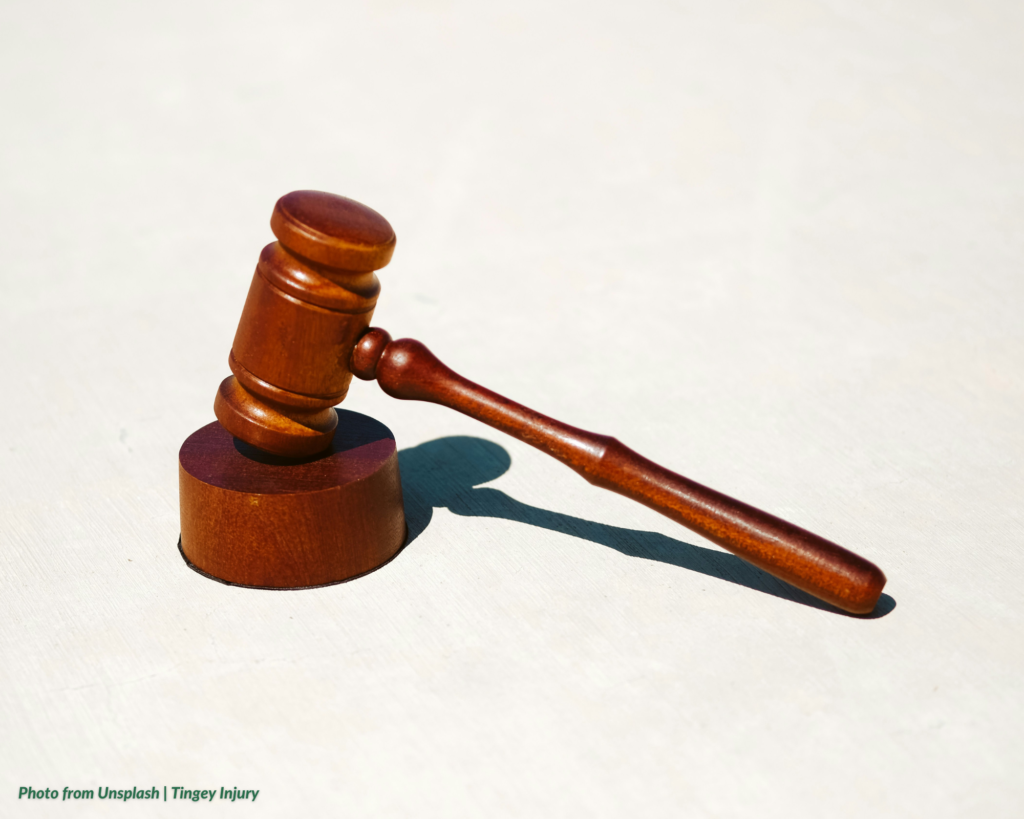
Photo from Unsplash | Tingey Injury
The following post does not create a lawyer-client relationship between Alburo Alburo and Associates Law Offices (or any of its lawyers) and the reader. It is still best for you to engage the services of a lawyer or you may directly contact and consult Alburo Alburo and Associates Law Offices to address your specific legal concerns, if there is any.
Also, the matters contained in the following were written in accordance with the law, rules, and jurisprudence prevailing at the time of writing and posting, and do not include any future developments on the subject matter under discussion.
AT A GLANCE:
In all criminal prosecutions, the accused shall enjoy the right to be informed of the nature and cause of the accusation against him. (Section 14, par. 2, Article III, 1987 Constitution)
Due process in criminal prosecution requires that an accused be informed of the nature and cause of the accusation against him. This is a right enshrined in the 1987 Constitution.
The law says:
“In all criminal prosecutions, the accused shall be presumed innocent until the contrary is proved, and shall enjoy the right to be heard by himself and counsel, to be informed of the nature and cause of the accusation against him, to have a speedy, impartial, and public trial, to meet the witnesses face to face, and to have compulsory process to secure the attendance of witnesses and the production of evidence in his behalf. However, after arraignment, trial may proceed notwithstanding the absence of the accused provided that he has been duly notified and his failure to appear is unjustifiable.
This constitutional mandate is reinforced in the procedural rules instated to safeguard the rights of the rights of the accused. Arraignment is one of these safeguards. Due process requires that the accusation be in due form and that the accused be given the opportunity to answer the accusation against them.
Arraignment is the accused’s first opportunity to know the precise charge pressed against him/her. During the arraignment, the accused is informed of the reason for his or her indictment, the specific charges he or she is about to face, and the corresponding penalty that could possibly be meted against him/her.
Thus, arraignment is not a mere formality but a legal imperative to satisfy the constitutional requirements of due process. (Omar Villarba v. Court of Appeals, G.R. No. 227777, June 15, 2020)
Jurisprudence says:
“Arraignment refers to the formal mode and manner of implementing the constitutional right of an accused against him.” (Taglay v. Daray, G.R. No. 164258, August 22, 2012)
In the case of Leticia Kummer v. People (G.R. No. 174461, September 11, 2013), the Supreme Court ruled that:
“Arraignment is indispensable in bringing the accused to court and in notifying him of the nature and cause of the accusations against him. The importance of arraignment is based on the constitutional right of the accused to be informed. Procedural due process requires that the accused be arraigned so that he may be informed of the reason for his indictment, the specific charges he is bound to face, and the corresponding penalty that could be possibly meted against him. It is at this stage that the accused, for the first time, is given the opportunity to know the precise charge that confronts him. It is only imperative that he is thus made fully aware of the possible loss of freedom, even of his life, depending on the nature of the imputed crime”
Related Article/s:
Acquittal of Employee in Criminal Case Does Not Negate Finding of Illegal Dismissal
Alburo Alburo and Associates Law Offices specializes in business law and labor law consulting. For inquiries regarding legal services, you may reach us at info@alburolaw.com, or dial us at (02)7745-4391/ 0917-5772207/ 09778050020.
All rights reserved.


